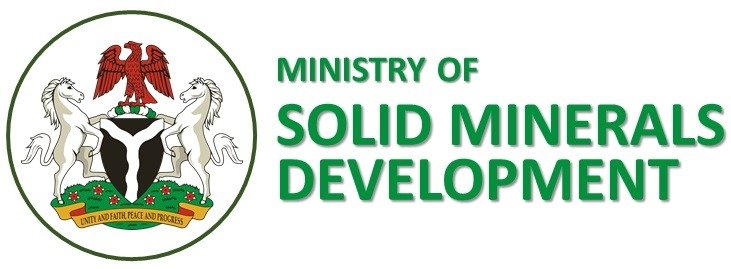Introduction to Nigeria and South Africa’s Mining Landscape
The mining industries in Nigeria and South Africa play a crucial role in the economic development of both nations, shaped by their distinct historical contexts and the wealth of mineral resources they possess. Nigeria’s mining sector has witnessed substantial development, especially as the government actively encourages investment beyond oil, fostering an economic diversification initiative. The country is endowed with a variety of minerals, including gold, coal, limestone, and iron ore, which present significant opportunities for sustainable development. Furthermore, with the recent legislative reforms aimed at improving the regulatory framework, there is a growing interest in attracting both local and foreign investments in Nigeria’s mining sector.
On the other hand, South Africa boasts one of the most advanced mining industries globally, heavily embedded in its economy. Historically, the country has been the world’s leading producer of minerals such as platinum, gold, and diamonds. South African mining companies have developed sophisticated technologies and mining practices, giving them a competitive edge in the global market. However, challenges such as infrastructural deficits, fluctuating commodity prices, and labor disputes affect the sustainability of the industry. Additionally, socio-political issues and environmental concerns are increasingly influencing mining operations, prompting the need for innovative approaches to balance economic growth and environmental stewardship.
The collaboration between Nigeria and South Africa offers a promising avenue to address the challenges each country faces in their mining sectors. Nigeria can leverage South Africa’s advanced technologies and expertise to enhance its mining practices, while South African firms can gain access to Nigeria’s vast mineral wealth. This synergy not only holds potential for economic advancement but also fosters a partnership that prioritizes sustainable practices important for the mining industry’s long-term viability in both nations.
Benefits of Nigeria-South Africa Collaboration
The collaboration between Nigeria and South Africa in the mining sector holds significant potential for fostering sustainable development. One of the primary benefits of this partnership is the access to South Africa’s advanced mining technologies. These innovations can significantly enhance operational efficiency, safety, and environmental sustainability in Nigeria’s mining practices. For instance, the adoption of automated machinery and data analytics tools can streamline mining processes, reducing waste and input costs while increasing productivity.
Moreover, the collaboration promises substantial economic growth in Nigeria. By integrating South Africa’s expertise in resource management and extraction, Nigerian mining companies can optimize their operations, leading to increased output. This uptick in production can stimulate local economies, contributing to broader national growth. Additionally, as the mining sector develops, it can create numerous job opportunities, addressing unemployment and improving the livelihood of communities dependent on mining activities.
Skill development is another crucial component of Nigeria-South Africa collaboration. By engaging in knowledge exchange programs and joint ventures, Nigerian workforce members can benefit from training and capacity-building initiatives. This exchange of skills and competencies not only enhances the technical know-how of local miners but also encourages the implementation of best practices in the industry, fostering a more sustainable mining framework.
Real-world examples of successful partnerships further underscore the potential benefits of this collaboration. For instance, initiatives such as the Southern African Development Community (SADC) have demonstrated effective cooperation between nations in mining and resource development. These partnerships have led to shared resource management strategies, benefitting all parties involved. Engaging in similar initiatives can create a model for Nigeria and South Africa, leading the way towards a more sustainable and prosperous future in the mining sector.
Challenges and Solutions in Collaboration
Fostering collaboration between Nigeria and South Africa in the mining sector presents several challenges that must be addressed to ensure sustainable development. Regulatory hurdles are among the primary obstacles, as each country has its own set of legal frameworks governing mining operations. Navigating these regulations can be complex and time-consuming, often deterring investors and hindering cross-border cooperation. Furthermore, the lack of harmonization in policies related to environmental protection, labor rights, and taxation can create confusion and reduce the attractiveness of joint ventures.
Geopolitical factors also play a significant role in shaping the collaborative landscape between the two nations. Political instability, varying economic priorities, and diplomatic relations can impact collaboration efforts. Investors may hesitate to commit resources if they perceive risks associated with changes in governance or policy direction. Differences in investment climates, including approaches to foreign direct investment, can lead to misunderstandings and reluctance to engage in partnerships. An awareness of these geopolitical dynamics is essential for fostering an effective collaborative environment.
To mitigate these challenges, strategic partnerships between government and industry stakeholders are crucial. Such partnerships can facilitate dialogue, foster understanding, and enable the sharing of best practices. Additionally, policy harmonization at regional levels can create a more coherent regulatory framework, promoting greater confidence among investors. International support from organizations and development banks can also assist in bridging gaps in capacity-building and governance, thus enhancing the enabling environment required for investment and collaboration to thrive.
Transparency and good governance are vital components for this environment to flourish. Establishing clear communication channels, setting measurable objectives, and ensuring accountability among stakeholders will cultivate trust and encourage collaboration. As both countries explore avenues for sustainable mining development, addressing these challenges with robust solutions will be imperative for achieving mutual benefits.
The Road Ahead: Strategies for Sustainable Mining Development
To strengthen collaboration between Nigeria and South Africa in the mining sector, it is vital to implement actionable strategies that prioritize sustainable development. This transformation can be achieved through a series of comprehensive policy recommendations that promote mutual interests while safeguarding environmental health. Both countries should consider establishing bilateral agreements focused on harmonizing mining regulations, environmental standards, and best practices. This can streamline operations and create a more inviting atmosphere for investors interested in the mining industry.
Investment in technology transfer is another crucial strategy. By facilitating the exchange of advanced technologies and innovative practices between Nigeria and South Africa, both nations can enhance the efficiency and sustainability of mining operations. Leveraging South Africa’s experience in more developed mining techniques can assist Nigeria in optimizing its resources, subsequently leading to increased productivity while minimizing negative environmental impacts. Efforts should also be made to create joint ventures that focus specifically on employing sustainable technologies and facilitating research and development in this area.
Capacity building is equally important for fostering resilience within the mining sector. Skills development programs must be introduced to train local workforce in both countries, prioritizing safety protocols, sustainable practices, and leadership in responsible mining techniques. This will not only empower local communities but also ensure that the mining industry contributes positively to economic development without compromising ecological integrity.
Finally, engaging in regular dialogue between stakeholders from both nations is essential. This ongoing collaboration will allow for addressing emerging challenges, sharing knowledge, and driving innovation in sustainable mining practices. To conclude, it is imperative for stakeholders in Nigeria and South Africa to actively pursue these strategies, significantly enhancing their mining partnership, ultimately leading to mutual growth and development in the sector.




